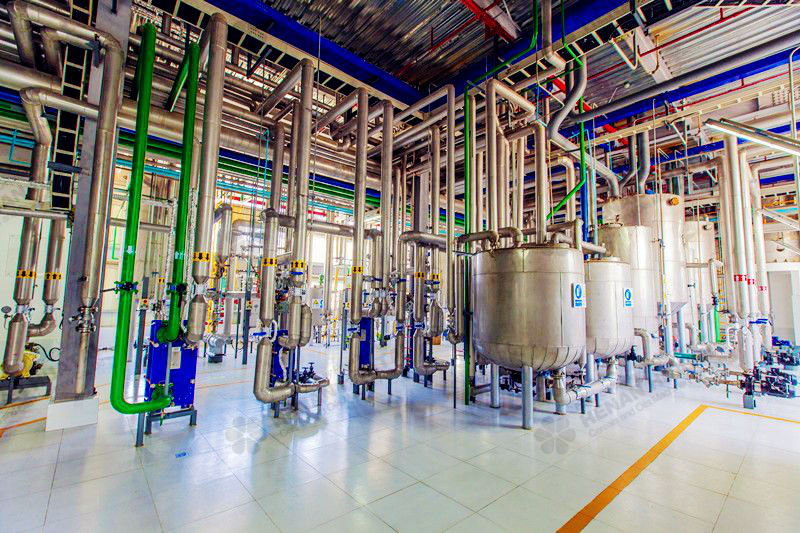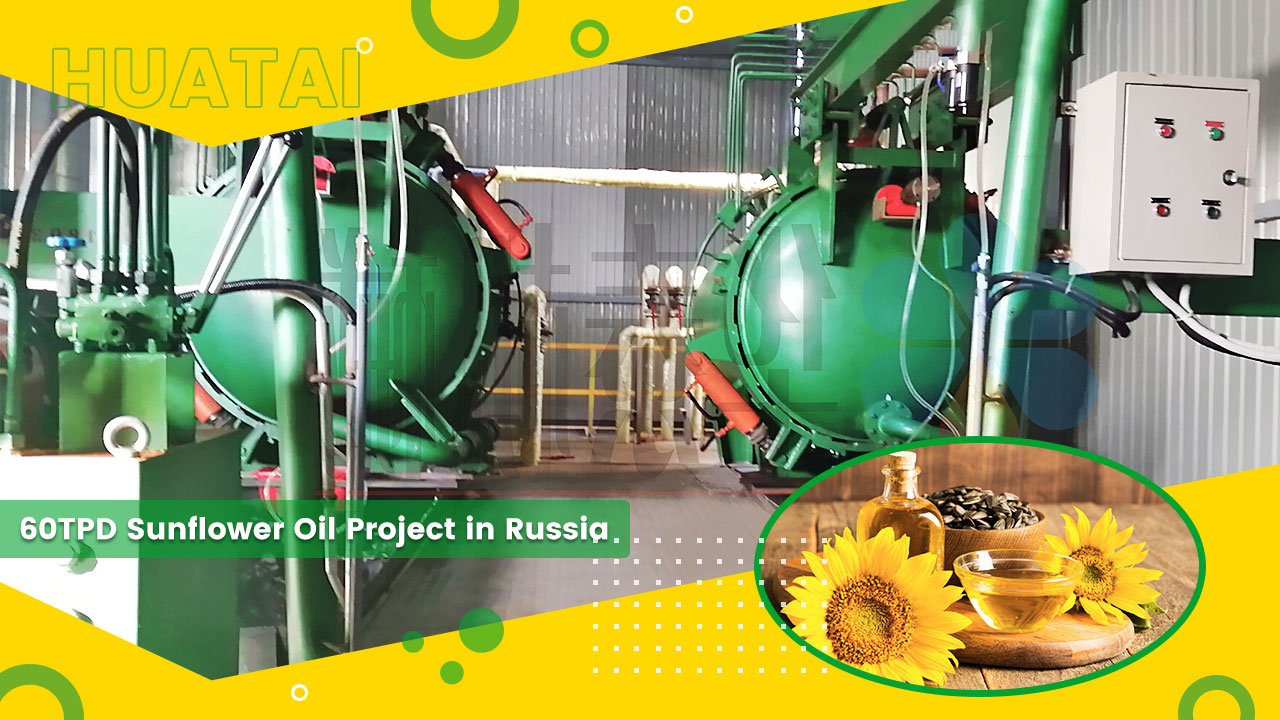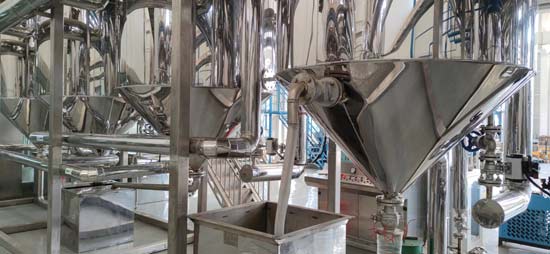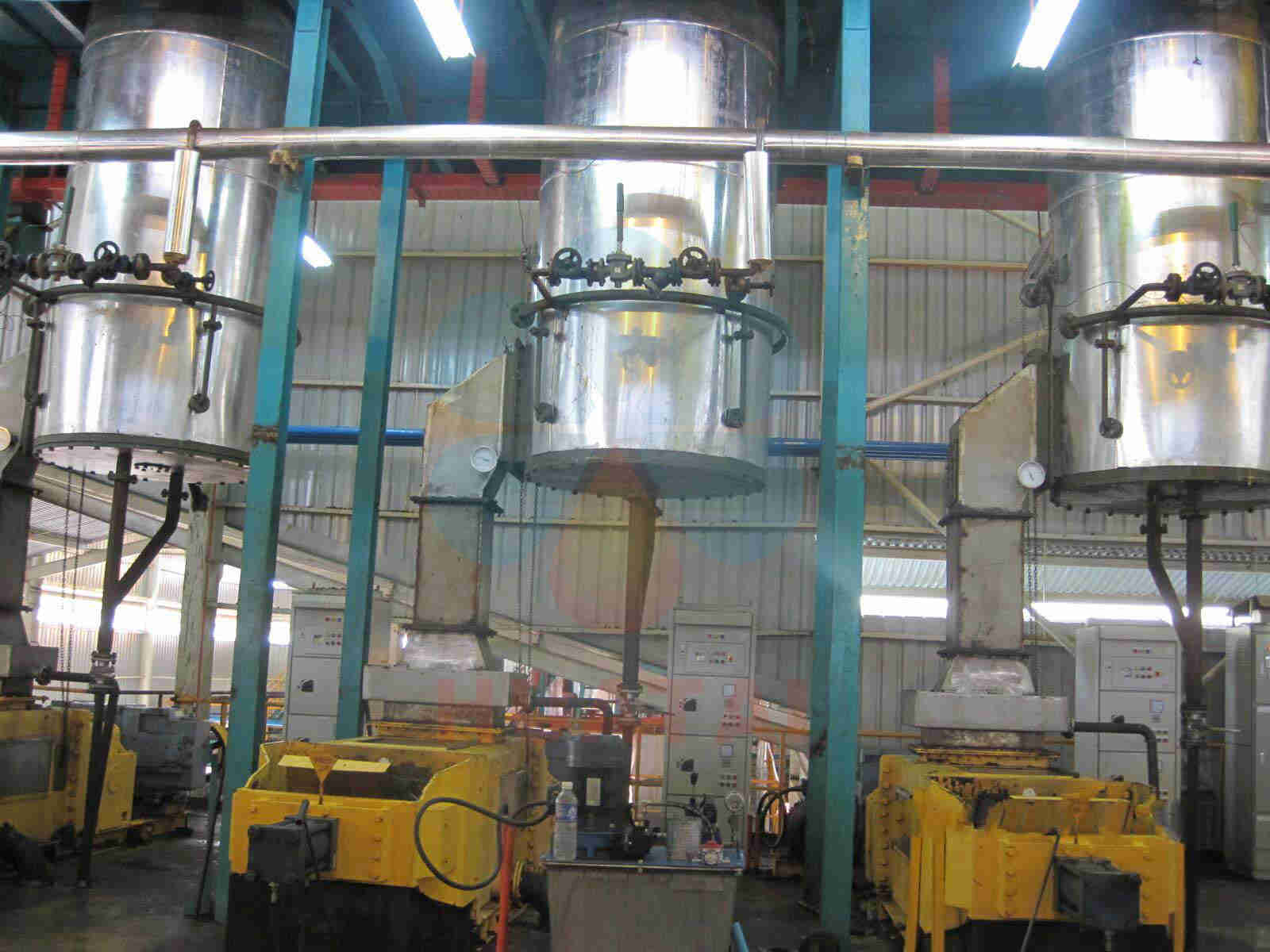The palm oil deacidification process is necessary because crude palm oil contains free fatty acids (FFA), which can cause the palm oil to become rancid, which can negatively affect its taste, smell, and shelf life. High acidity can cause palm oil to deteriorate faster, resulting in a worse taste and reduced nutritional value.
In addition, excessive intake of free fatty acids can pose a threat to health. Therefore, reducing acidity through the palm oil deacidification process can not only improve the quality of palm oil, but also ensure that palm oil meets safety standards.
Palm oil deacidification usually uses physical deacidification, that is, high-temperature distillation deacidification. The specific operating process is:
1. Under vacuum conditions, the oil is heated to a temperature close to the boiling point of the free fatty acids. Due to the low boiling point, the free fatty acids will evaporate, while triglycerides (the main component of the oil) remain in the oil.
2. Steam injection: During the distillation process, steam is usually injected to increase the volatility of free fatty acids and improve the efficiency of deacidification.
3. Condensation recovery: The evaporated free fatty acids are recovered through the condenser and can be sold as a by-product.

Of course, in addition to physical deacidification, chemical alkali refining deacidification can also be carried out. The chemical deacidification process is:
1. Alkali addition: A certain concentration of alkali (usually an aqueous solution of sodium hydroxide or potassium hydroxide) is added to the crude oil, and the hydroxide ions in the alkali react with the free fatty acids to generate fatty acid salts (soap stock) and water.
2. Soap stock separation: After the neutralization reaction, the generated fatty acid salts (soap stock) are separated from the oil. Since the soap stock is insoluble in oil, it will form flocs and be removed from the oil by standing or centrifugal separation.
3. Washing: After removing the soap stock, the oil needs to be washed with water to remove the residual alkali and soap stock to ensure that there is no alkali residue in the oil.
The palm oil deacidification process is a crucial step in the palm oil refinery. This is done to inhibit the growth of free fatty acids, otherwise it will damage the quality and safety of palm oil. As a professional edible oil processing machinery manufacturer, Huatai Oil Machinery can tailor a palm oil refining process that suits you based on your needs and investment costs.
Website: https://www.oilpresscn.com/
Email: info06@cnoilmachine.com



